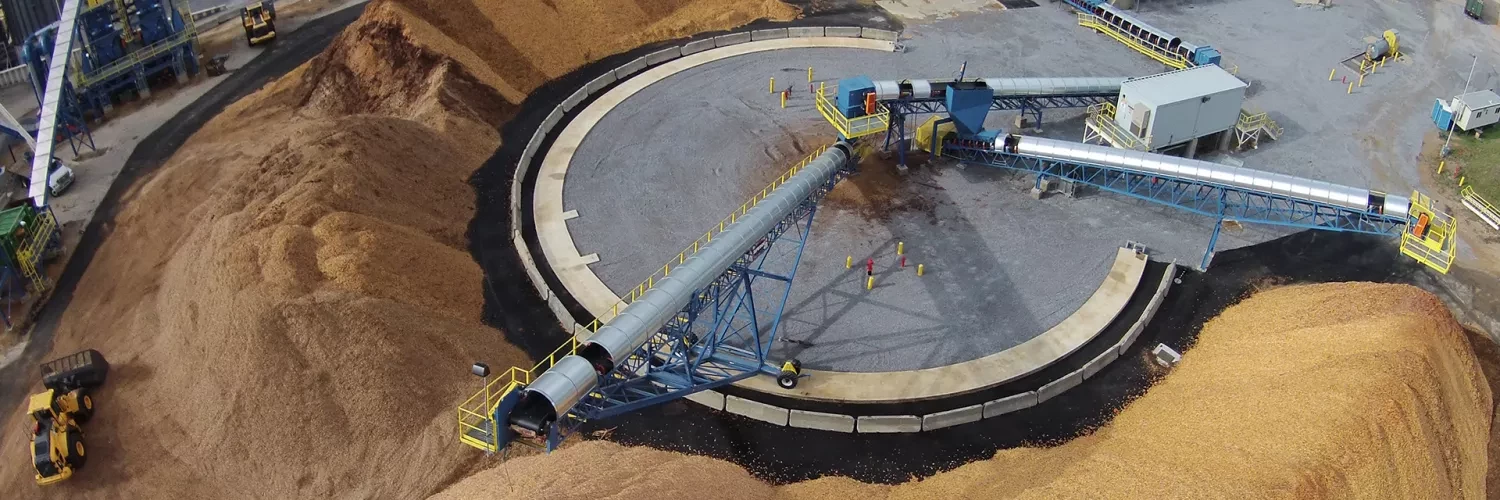Food and farming
Vital to food and farming supply chains
Food and farming are the most important industries worldwide. Managing the process of food’s distribution and transport in the most efficient and cost effective way possible, with minimal waste, allows more of the world’s foodstuff to get to where it is needed the most. In the face of a rising population, this is even more important.
Bruks Siwertell does not grow food; but our machines are vital throughout its supply chain in many countries. Not only can we handle fertilizers and the raw materials needed for food production, but our ship unloaders, loaders, conveyors, and storage and reclaiming systems have a worldwide reputation for handling grains, soybeans and all forms of agricultural bulk commodities.
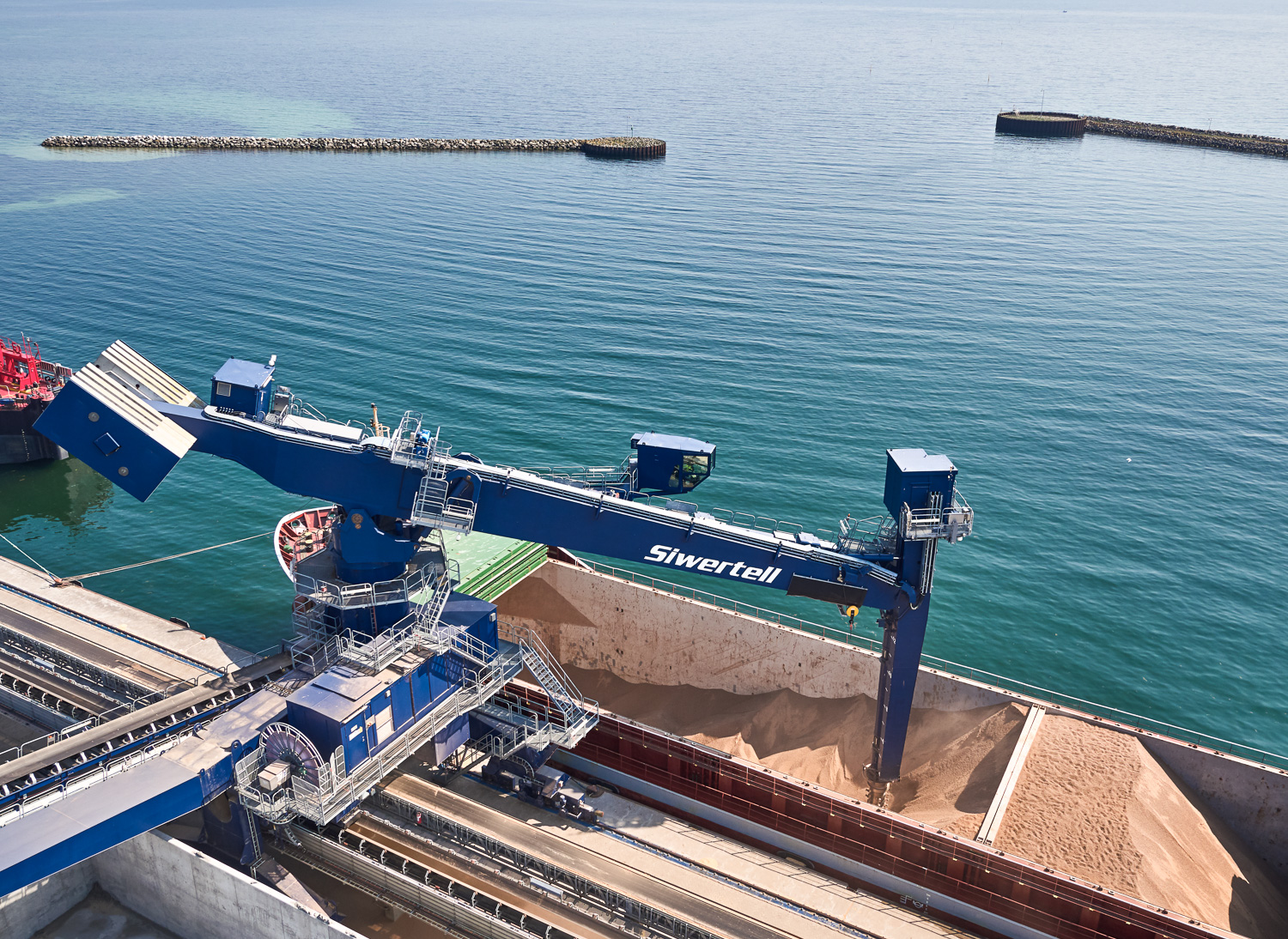
High throughputs, low operating costs
With high throughputs, low operating costs and virtually no cargo degradation, Siwertell installations out-perform all other continuous unloading systems on the market.
Our totally enclosed Siwertell screw-type ship unloaders can discharge grain and other agribulk materials at continuous rated capacities of up to 1,800t/h. When operators serve multiple ports, our road-mobile units offer extremely flexible operations with many of the same benefits that large-scale unloaders deliver.
Conveying velocities within Siwertell ship unloaders are consistently smooth, ensuring minimal material collisions within the unloader and its screw-type conveyors. This delivers a unique advantage for grain handlers and ensures that our ship unloaders maintain the quality of shipments.
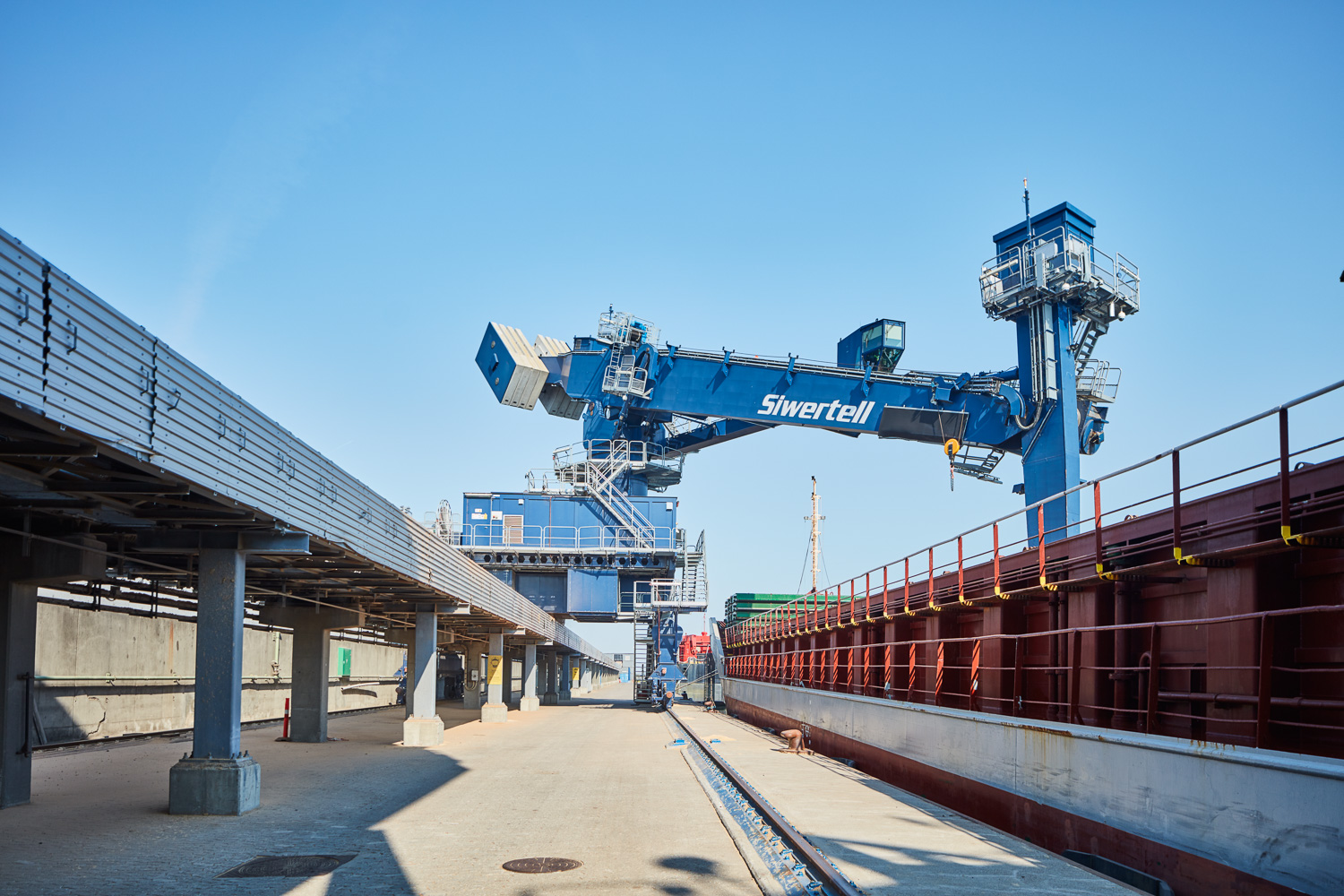
Serving the world’s breadbasket
Fertile soils and high rainfalls make Brazil one of the world’s largest agricultural powerhouses. Its ports work round-the-clock to some of the tightest operational schedules, and serving them are Siwertell four high-capacity grain ship unloaders. Each machine runs for about 3,500 hours/ year.
All are privately-owned and compete for business in southern Brazil. Unitapajós (formerly Bunge Brazil) and TGPM (formerly ADM de Portos Pará), serve the Port of Barcarena and Cargill Agricola, operates in Santarém, on the River Amazon. Each operates a Siwertell ST 790-M ship unloader with a continuous rated capacity of up to 1,500t/h for foodstuffs such as soybeans and corn. Amaggi (formerly Hermasa Navegação da Amazônia) in Itacoatiara, also on the River Amazon is served by a Siwertell ST 790-F barge unloader and ship loader configuration and also has a rated loading and unloading capacity of 1,500t/h.
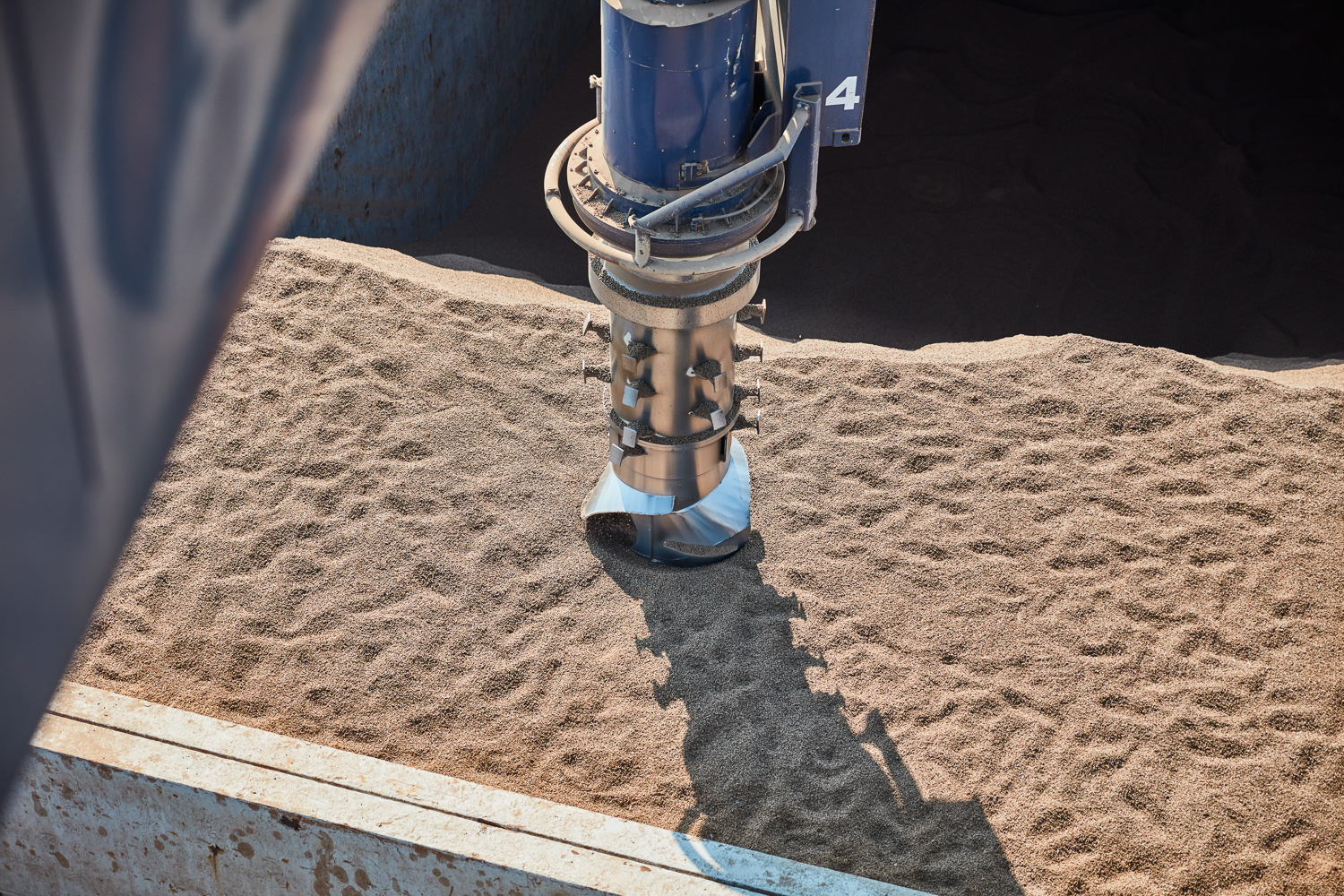
Port-mobile unloader sets new standards
We understand that investing in any new technology is a major decision. Bulk handling equipment must meet operational needs, but it should also deliver maximum return on investment, the highest efficiencies, and the lowest possible running and maintenance costs. New technology should offer the best the market can deliver.
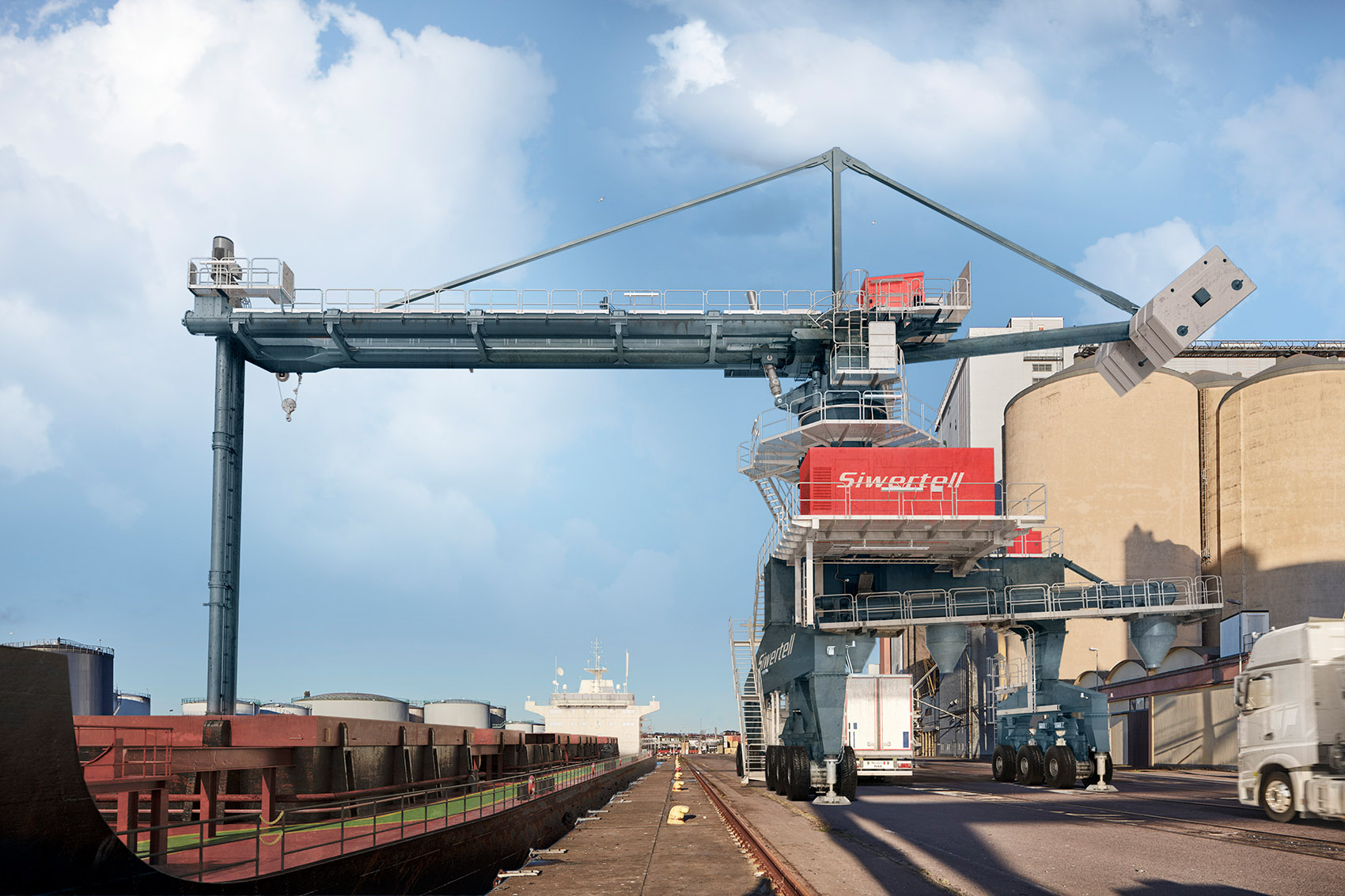
For grain-handling operators whose import volumes do not justify the economies of scale delivered by large, fixed unloading installations, or those that do not have a designated berth, we have developed the Siwertell port-mobile unloader. Available in two sizes, a 400t/h and a 600t/h version, the unloader range serves vessels up to 60,000 dwt. There are many good reasons why operators should be considering them.
Maximizing terminal efficiencies
Bruks Siwertell focuses on delivering systems that offer maximum efficiency for a specific operation. Different configurations of equipment will deliver different returns. If you are unsure if your terminal is tailored to your needs and offering you the very best throughput, profitability and efficiency, we can assess this with our value calculation tool.
READ MORE ABOUT OUR CALCULATION TOOL
Complete terminal designs
Many factors are at play in agribulk terminals. Delicate grain cargoes need to be protected from the weather, stored and transported carefully so they do not spoil, and are not damaged through handling, and terminal equipment has to be very efficient as it often has to meet seasonal variations in volumes.
We have decades of experience designing complete terminals to maximize throughput. The Bruks Siwertell-designed terminal in Klaipéda, Lithuania, is an extremely efficient, automated, environmentally friendly multi-mode facility owned and operated by major stevedoring company Bega. Since commissioning, the terminal has doubled Bega’s dry bulk cargo throughput and provides extremely flexible agri-bulk services for the Baltic region.
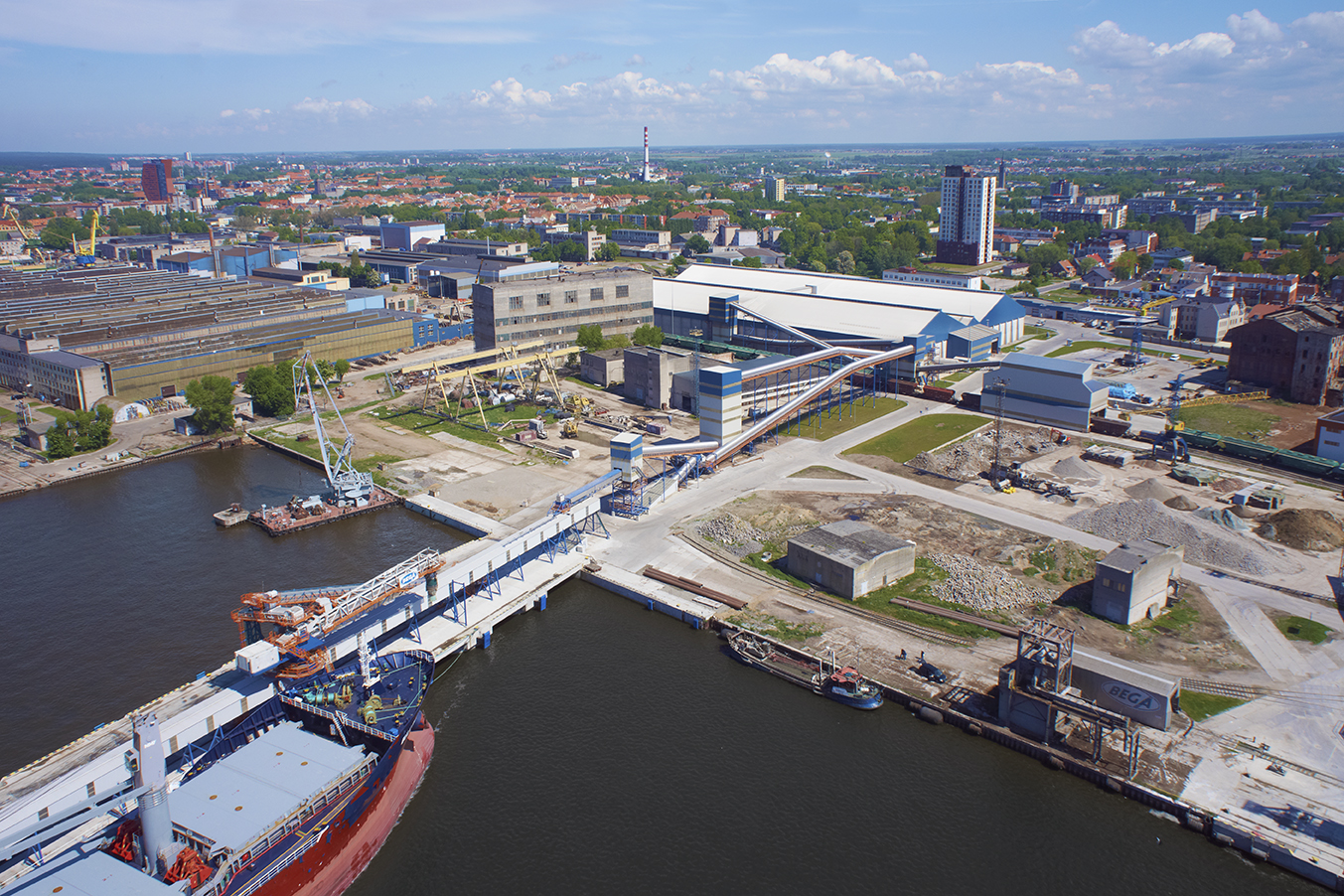
Keeping cargoes flowing
When ship loaders are needed for handling grain, our lightweight, compact belt-type grain loaders offer capacities of up to 2,000t/h for vessels up to post-Panamax size. If needed, even higher loading capacities are possible.
Our efficient, clean conveying systems can be matched to our grain ship loaders and ship unloaders.
All Bruks Siwertell’s range of grain handling systems provide exceptional environment-friendly performance with minimal dust emissions and no spillage.
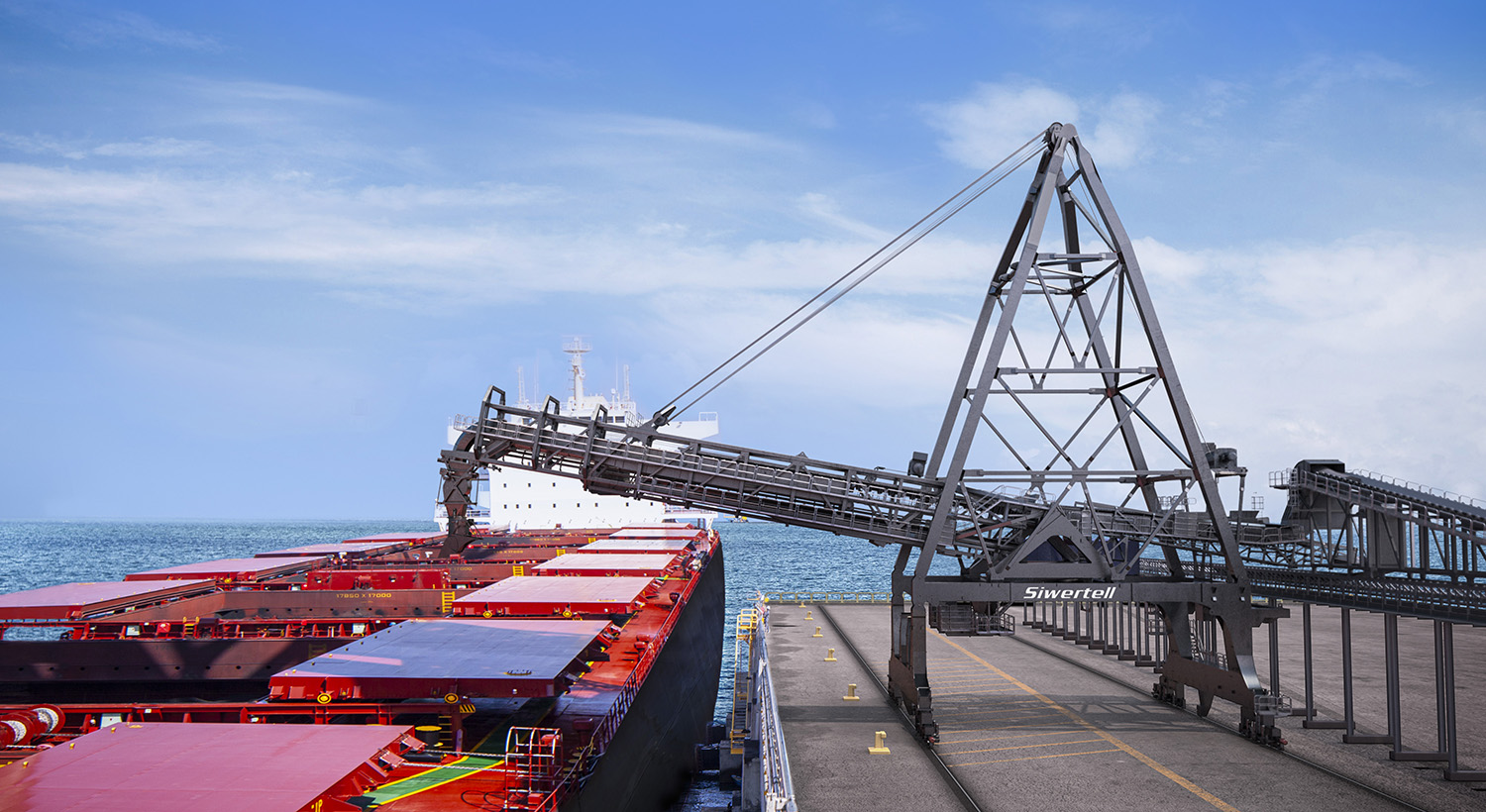
Storing and reclaiming: a speciality
Grain needs to be stored and handled correctly to avoid losses through waste and spoilage. We specialize in this care. Our storage and stacker reclaimer installations are found worldwide, forming linear, semi-circular or fully-circular piles in a range of sizes and capacities.
Each stacker reclaimer has an optimized design based on the material being stored and the density and angle of repose. The geometry of circular stacking means that significant volumes of materials can be stored at a much lower cost than linear systems. However, when mega volumes are needed, the extent and expandability of a linear system cannot be beaten.
Automated systems deliver the greatest efficiencies. Ours can operate 24-hours-a-day in all weather conditions, with minimal maintenance, making them a fit-and-forget solution for the short-term storage of grain, beans, and other foodstuffs.
No food without fertilizers
Modern agriculture needs fertilizers, but handling them comes with its own set of challenges. They are commonly made up of compounds of nitrogen, phosphorus and potassium, along with sulfur, making them hazardous, particularly if contained in an enclosed space.
Bruks Siwertell is the only company able to offer safe, totally enclosed systems for unloading bulk fertilizers, thanks to our experience with sulfur handling and our Siwertell Sulfur Safety System (4S).
Efficient, safe unloading in the Arctic Circle
Norway’s leading mineral fertilizer producer, Yara International, operates the world’s northernmost fertilizer plant in Glomfjord. Serving the plant is a rail-mounted Siwertell ST 490-M ship unloader. It replaced a similar unit delivered by Bruks Siwertell in the early 1980s.
Yara expects to get another three decades from its latest Siwertell system, which handles various rock phosphates and potash fertilizers at a continuous rated discharge of 600t/h, with a peak capacity of 700t/h, depending on the material being handled.
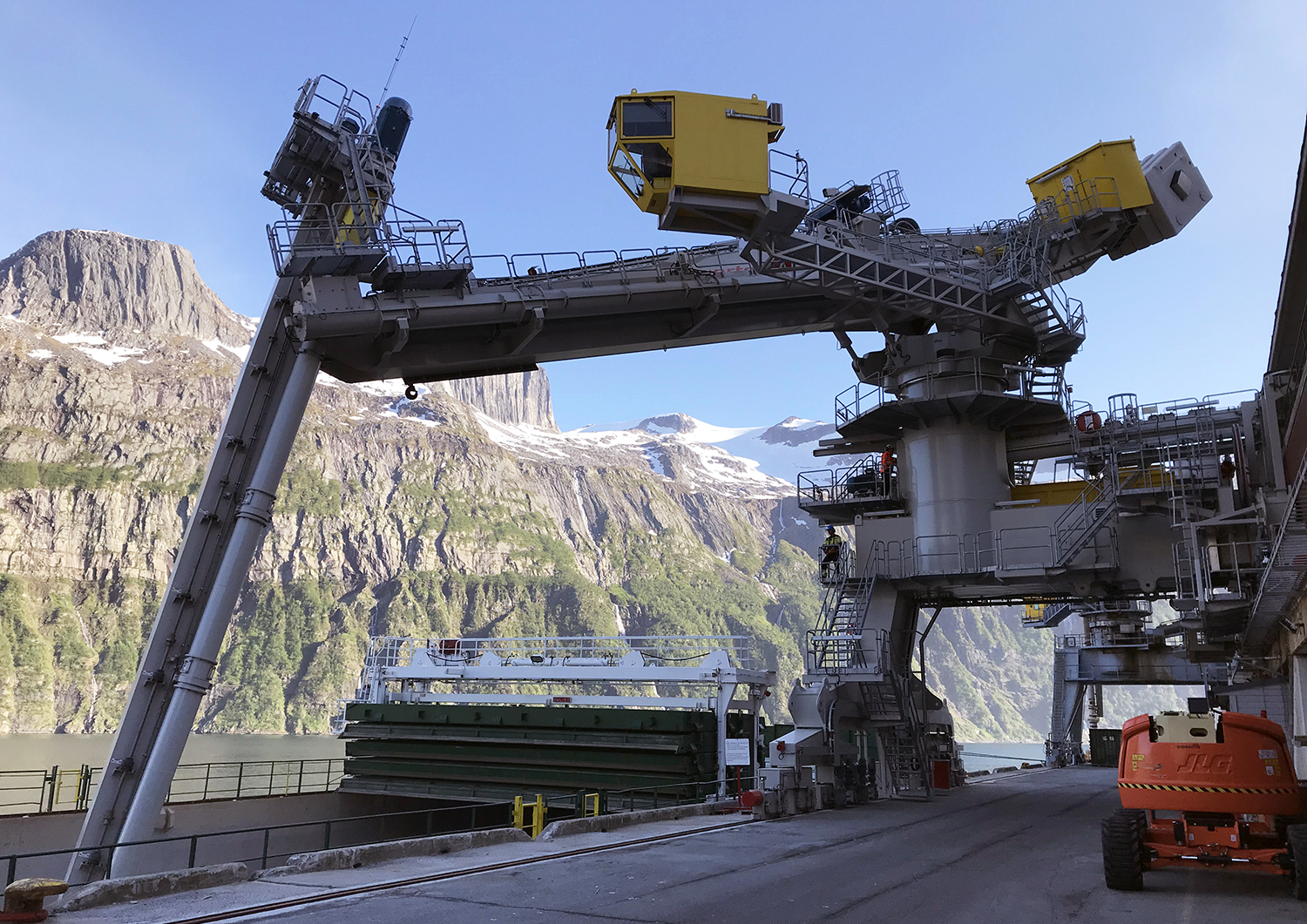
Industrial green waste processing and food waste recycling: Transforming raw materials into fertilizer and energy feedstocks
Recycling waste back into use is a key industrial-scale sustainability strategy across the globe. For long-term sustainability, it is essential that circular economies are adopted and the use of raw materials is maximized. Recycling can also add profitability if businesses can access the potential value in waste.
With our powerful green, organics and food waste processing systems it is possible to ensure high volume production lines for food industry supply chains such as fertilizer handling and production. We offer a full range of food and green waste processing machinery with capacities from 20 to 200t/h.
Our robust, field-proven processing equipment delivers round-the-clock, long, reliable service lives, converting varied waste feedstocks into a uniform, high-quality raw material that can then be used across food industry supply chains and in other industrial applications such as composting, soil enhancing, soil generation, biofuels, and anaerobic digestion for the conversion of organic waste into biogas.
Not all facilities have the same needs
We understand that the food and green waste processing needs of each composting, food waste recycling, fertilizer handling and food supply chain facility will vary. This may be in terms of incoming raw material, end product specifications, facility layout, and long-term goals.
Our experienced team learns about your operation and designs the best solution for an optimized, efficient and successful installation.
Food waste recycling and green waste processing operations require a range of machinery, which we are able to supply as stand-alone or as a turn-key integrated green waste processing solution. Our machinery ensures that raw materials are in an optimum condition for further treatments and processing.
Frequently specified equipment for high-volume organics processing includes trommel screens, vertical grinders, chain metering bins, conveyors, disc screens, light fraction separators, picking stations, and platforms, walkways and stairs.
Like food waste recycling, converting green waste, including tree trimmings, leaves, grass, and leaves, into marketable fiber offers multiple benefits including reducing the amount of material sent to landfill, producing compost material and soil enhancers, and creating new revenue streams from waste.
Our WSM green waste processing equipment typically comprises trommel screens, horizontal and vertical grinders, chain metering bins, conveyors, disc and oscillating screens, picking and sorting stations, and platforms, walkways and stairs.
Optimized green waste processing delivers economic and environmental gains
Our green waste processing technology simplifies your operation while minimizing material handling, labor, and energy requirements, reducing operating costs and increasing production capacities and efficiencies.
We offer a range of stationary, electric-drive green waste processing equipment that can handle a wide variety of feedstocks, from incredibly dense forestry waste to mixed, free-flowing organic food waste. They have been specifically designed to deliver optimized, high-volume processing, at low cost per metric ton of material processed.
Electric-drive systems offer environmental advantages over diesel and hydraulic systems and ensure responsive, stepless equipment control, with low energy demands. Stationary equipment also offers operational advantages including minimal labor requirements, ease of operation, enhanced rates of reliability and very low maintenance costs, in comparison with portable systems.
When combined, these characteristics offer industrial waste food processing supply chains the highest possible production volumes at minimal through-life costs.
You get more than just a machine
- Access to our unique combination of continuous product innovation, application experience, technical and testing services
- Optional system integration and project management deliver fully functioning systems with reduced operating and maintenance costs, improved up-time, and superior production capabilities
- Proven reliability with hundreds of long-term installations, operating in the most demanding applications around the world
- Full range of capacities from 20 to 200t/h
- Fully electric machines offer environmental advantages over diesel and hydraulic systems and operational benefits in terms of maintenance and running costs
- Mill-duty design and construction provide reliable, long-term 24/7 production
- Excellent service and support; before, during, and after installation
Converting organic waste to compost enhances food production and reduces carbon emissions
Our industrial composting machinery has been specifically developed to improve the composting process, and ensure that food waste, green waste, manures and mixed organics can be converted into high-quality feedstock for composting and anaerobic digestion processes. Converting organic waste into high-quality compost with industrial composting machines is one of the most sustainable strategies in waste disposal, and an effective tool in reducing reliance on landfill, enhancing food production and reducing carbon emissions.
 Bruks-Siwertell
Bruks-Siwertell
